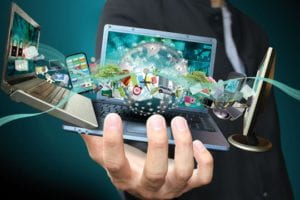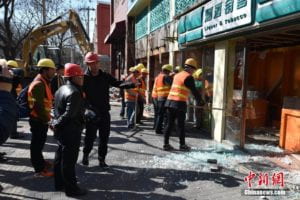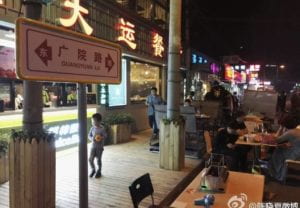This week, we read about how telecommunication development makes the city sentient and changes our perception of the world. Gabry talks about the wireless enables communication to happen between machine and machine, which makes use of “the imagined but unmapped space in the city” (p.53). I resonate with the point that the way we sense the world has been strongly altered by wireless communication. Kant defined time and space as two transcendental infrastructure upon which we generate our knowledge of the world. However, as all communication could be achieved by invisible infrastructure, we could no longer touch the entity which embodies “space” and “time.”As the idea of “global village” was gradually realized, the concept of “neighborhood” becomes obscure at the same time.

Because of the rapid development of the Internet, people’s knowledge of their living environment and arrangements for daily activities can be gained and achieved through mobile phones. When everything can be done online, we gradually lose a real and systematic understanding of the “nearby” in the real world. For instance, we read news about the big events happening every day in another continent, but we may not notice the shutdown of a local store near our residential house. It seems that we are living in a world that is abundant and bleak at the same time.
Speak from my personal feeling, the “disappearance of the neighborhood” has led to a state of “suspended” life. On the one hand, people can stay at home with peace of mind and see the larger world through the Internet, and keen to discuss the distant events; On the other hand, we have no communication with the deliverymen who work to satisfy our basic life demands, and our understanding of food and life need depends entirely on the numbers given by the e-commerce platforms. The popularization of the wireless service connects the people together on a global scale but at the same time impair people’s intimate feelings with their neighborhood. In that sense, the lives of modern people “float” through the Internet.
An important feature of modern society shrouded by technology is disenchantment. That is, things are no longer mysterious. The Internet makes information at your fingertips and makes it easy to build relationships. But also because people realize that “as long as I want to, I can”, what comes with convenience may not be curiosity, but inertia. Here is a question worths thinking: as the people become smarter and smarter, will the dwellers still could perform their subjective initiative, or will we be bounded by the city apparatus?







